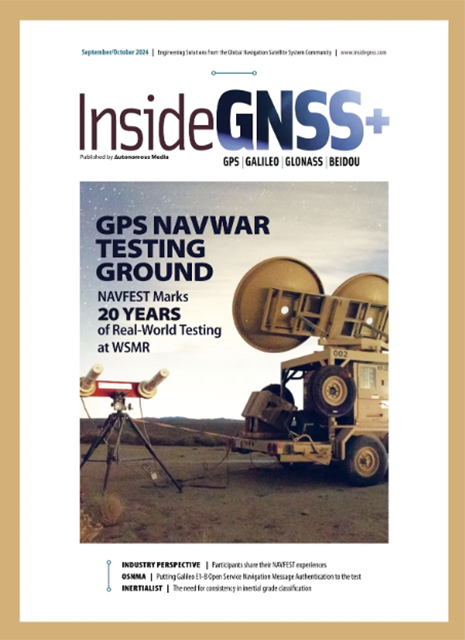 Harold Martin, director of National Coordination Office for PNT, at Munich SatNav Summit 2016
Harold Martin, director of National Coordination Office for PNT, at Munich SatNav Summit 2016Addressing a long-unfulfilled presidential mandate, the Space-Based Positioning, Navigation, and Timing (PNT) Executive Committee (ExCom) has taken on reponsibility for initiating a process to identify and develop requirements for a complementary national PNT, in effect, a backup system to GPS in case of outages from natural or man-made events.
Addressing a long-unfulfilled presidential mandate, the Space-Based Positioning, Navigation, and Timing (PNT) Executive Committee (ExCom) has taken on reponsibility for initiating a process to identify and develop requirements for a complementary national PNT, in effect, a backup system to GPS in case of outages from natural or man-made events.
Harold “Stormy” Martin, director of the National Coordination Office (NCO) for PNT, described the move in a March 2 presentation at the Munich Satellite Navigation Summit 2016 conference. The provision for a backup system was mandated in a 2004 President Decision Directive (PDD), with responsibility to do so assigned to the U.S. Department of Transportation (DoT) and the Department of Homeland Security (DHS).
As Martin pointed out, any federal acquisition process begins with the creation of a requirements document. The ExCom, cochaired by deputy secretaries of defense and transportation, and NCO will assess a wide range of user requirements, aided by a Federal Register notice now under development to solicit public stakeholder engagement. The ExCom will work toward decisions that can support “investment actions” for Fiscal Year 2018 (FY18).
The 2004 PDD called for the Secretary of Transportation, in coordination with the Secretary of Homeland Security, to “develop, acquire, operate, and maintain backup position, navigation, and timing capabilities that can support critical transportation, homeland security, and other critical civil and commercial infrastructure applications within the United States, in the event of a disruption of the Global Positioning System or other space-based positioning, navigation, and timing services.”
Despite an apparently clear statement of a goal — still unreached after more than 11 years — the sharing of the task (“in coordination with”) between the DoT and DHS — left neither fully responsible for its achievement.
Efforts to identify a backup more frequently took the form of proposing and advocating candidate solutions, such as enhanced Loran (eLoran). Indeed, the PNT ExCom itself endorsed eLoran as a step toward creating a GPS backup. In the absence of the usual acquisition approach, some federal agencies —such as the Federal Aviation Administration (FAA) — sought solutions that would meet the needs of their own user communities and stakeholders.





